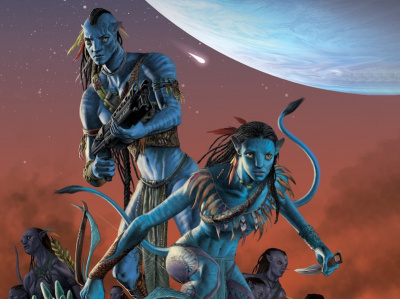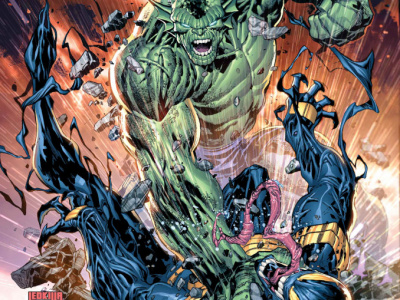
Legal wrangling over the damages in the eight year old lawsuit between Neil Gaiman and Todd McFarlane in federal court in
The current round in the case began in March of 2009, when Image Comics filed a notice asking the judge to examine the original judgment in the case in the light of subsequent Supreme Court and Court of Appeals rulings. It argued that such an examination was appropriate since the judgment was not final because damages had not been determined.
The Image filing was the first significant action on the case since the 7th Circuit Court of Appeals denied the appeal (see “The Final Verdict: Gaiman Wins”) back in 2004. That appeals court verdict affirmed the rulings at the district court level (see “Gaiman Sweep” and “Gaiman Wins Again”).
Image asked that it not be prohibited from selling inventory of books featuring the Gaiman characters without giving him credit, that Gaiman be ordered to pay Image its attorney’s fees, and that the court review its finding that the use of Gaiman’s likeness and biographical information without permission was not permissible.
On March 12th of this year, Judge Barbara Crabb (Judge Shabaz retired in the intervening years) denied the motion to re-open the judgment; that the judgment had been final. She left open the possibility that Image could sue to have the injunction requiring it to credit Gaiman on books containing the characters he created modified.
Crabb also noted the long time period during which damages had still not been calculated. “It is long past time to close this case definitively,” she said. “The parties have had more than enough time to undertake an accounting of the damages due plaintiff. Their failure to complete this relatively simple task makes it evident that the matter is not one to which they have given much consideration. A short deadline may serve to focus their attention.”
Crabb ordered that an the accounting of the damages be completed by July 7th of this year and that monthly reports be filed by Gaiman describing progress on the project.
A few weeks later, on March 30th, Gaiman’s counsel filed the first report. The two parties had been unable to resolve an accounting issue, which was whether or not to include revenues from the characters Gaiman argued were based on the ones he created. The bankruptcy court handling the matter (Todd McFarlane Productions filed bankruptcy in 2004, see “Todd McFarlane Productions Files Chapter 11”) ordered the accountant calculating the damages to decide the issue; he refused in August of 2007, stating that it was outside his experience.
McFarlane and Gaiman then unsuccessfully negotiated to resolve the issue.
The accountant charged with determining damages said in late March that after he got the documents he still needed, it would take three full-time people working for a minimum of four months, at a cost of $350,000 to determine damages.
Around the same time, Gaiman served discovery on the defendants, asking for the documents needed, and filed a motion with the court asking it to rule on the question of whether Dark Ages Spawn, Tiffany, and Domina were based on Medieval Spawn, and Angela.
On May 24th, Judge Crabb issued an opinion and order on the motion. She noted that the characters appeared similar (including the uniforms of Tiffany, Domina, and Angela, which consisted of “thong bikinis, garters, wide weapon belts, elbow-length gloves and poorly adjusted armor bras” but that she would hold an evidentiary hearing on June 14th at which all concerned could argue the question.
So the long road to a resolution of this case continues. Once Crabb rules on the motion regarding the three “derivative characters,” documents will still have to be produced and the accounting work done to determine damages. Without a settlement, it seems that this will go on for at least months to come.







